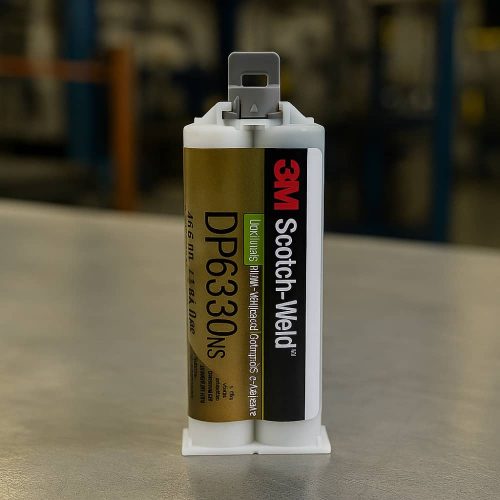La urethane glue is a technical adhesive based on polyurethane polymers, renowned for its flexibility, versatility and mechanical resistance over time. It stands out for its ability to offer solid but flexible assemblyIt can absorb vibrations, thermal expansion and shear stresses.
Available in single-component version (ready to use) or two-component (with hardener to mix), urethane adhesive is suitable for multi-material assemblies Plastics, composites, aluminium, glass, wood, etc. It is used for structural applications as well as for flexible bonding and technical sealing.
Thanks to its excellent adhesion and behaviour in demanding environments, the industrial urethane adhesive is now indispensable in sectors such as transport, construction, electronics and aeronautics.

Because of its versatility, urethane adhesive often replaces epoxy or acrylic adhesives where flexibility and dynamic strength are required.
We support your industrial projects with a rigorous selection of products tailored to your environment and performance objectives.
Are you looking for high-temperature urethane adhesivea fast-setting two-component formulationor a flexible product for dynamic bonding ?
📩 Contact our experts for a technical recommendationsand samples to be tested or a personalised quote.
Urethane adhesive is more flexible and resistant to vibration, whereas epoxy is stiffer and more mechanically resistant. Urethane is ideal for assemblies subject to movement.
Yes, it is resistant to UV, humidity and extreme temperatures. It is a common choice for construction and vehicles.
Aluminium, wood, concrete, PVC, glass, composites, steel, PU foam... It is extremely versatile.
Generally up to 120°C, see 140°C with specific high-temperature formulations.
Often not, but it depends on the substrate. Adhesion tests are recommended to confirm adhesion without primer.